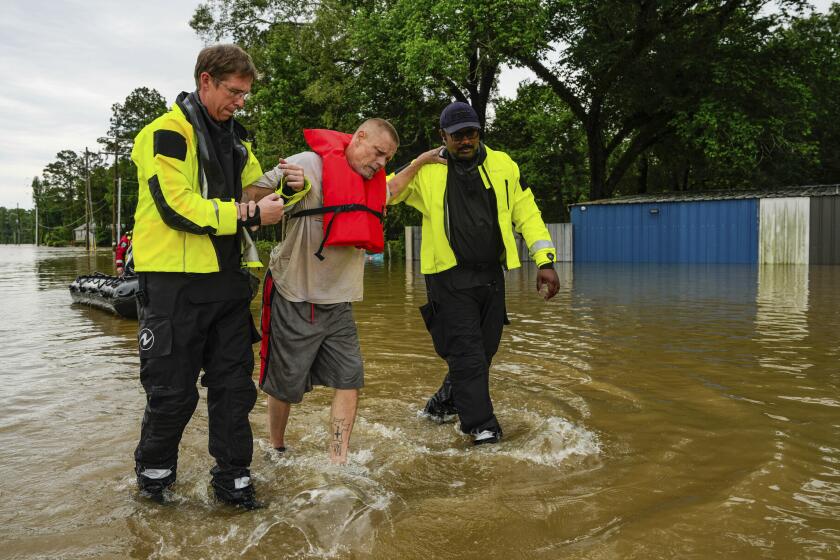Iraq Mire Is a Global Issue
After months of arrogant defiance, the Bush administration finally is turning to the United Nations for help with the Iraqi occupation. Bush officials must seize this fleeting moment to revise their dismissive, haphazard approach to postwar Iraq and instead press a U.N. resolution to bring in international forces and the global community to turn around a situation that drifts, by the day, toward disaster.
The longer the occupation goes on, the clearer it has become that Bush officials, who took down Saddam Hussein with alacrity, assumed that rebuilding Iraq would be easy. A new, classified study by the Joint Chiefs of Staff finds hasty, inadequate Iraq planning.
With the Congressional Budget Office stating that the United States can maintain its current level of 140,000 or so troops only until March, the administration’s turn to the U.N. indicates that it is coming to grips with the decaying realities in Iraq. Water, power and especially security -- the basics of any nation-rebuilding -- still are badly lacking, and an increasingly lethal resistance grows.
The four areas of the U.S.-proposed resolution offer a good start, including calling for efforts by the United Nations, the U.S.-led coalition and the Iraqi Governing Council and Cabinet to create a democratically elected Iraqi government and to accelerate reconstruction. But the administration should consider more. It should formally ask the U.N. to take over politically in Iraq; it should maintain its military forces and financial commitments under this plan, which also would bring in at least 100,000 non-American troops to help stabilize Iraq.
Especially important is getting Indian and Pakistani troops, many of them Muslims; this would diminish the overwhelming U.S. presence, which only feeds religious and nationalistic tensions, says Gen. John Abizaid, the U.S. commander in Iraq. Reps. Frank R. Wolf (R-Va.) and Henry J. Hyde (R-Ill.) want the president to include as many troops as possible from the already overtaxed and reluctant NATO countries.
The Iraq reconstruction, of course, will cost the world dearly, U.S. taxpayers especially so. Which is why the administration, while shifting its stance on the U.N. and Iraq, is past due in providing Americans with a full, clear accounting of the price of and plan for the Iraq campaign, which has an estimated cost of $1 billion a week. Congress no longer can sit by and accept whatever the administration deigns to tell it, especially with this nation facing a $500-billion deficit in 2004.
With more than 300 U.S. deaths and many thousands of Iraqi and international casualties, the gravity of the U.S. incursion in one of the globe’s most unstable regions only deepens. Bush officials assured the nation that this involvement was vital to U.S. interests and that America’s best intention was to bring peace to Iraq, and perhaps then to the whole Mideast.
That U.S. commitment will be excruciating to fulfill, would be hugely damaging to back track on. And like it or not, quelling the chaos in Iraq has become a mission in which the international community suddenly has a huge stake. The U.S. and peace-minded nations can’t leave Baghdad in blazes for fear of greater calamities spreading.
More to Read
Start your day right
Sign up for Essential California for news, features and recommendations from the L.A. Times and beyond in your inbox six days a week.
You may occasionally receive promotional content from the Los Angeles Times.






